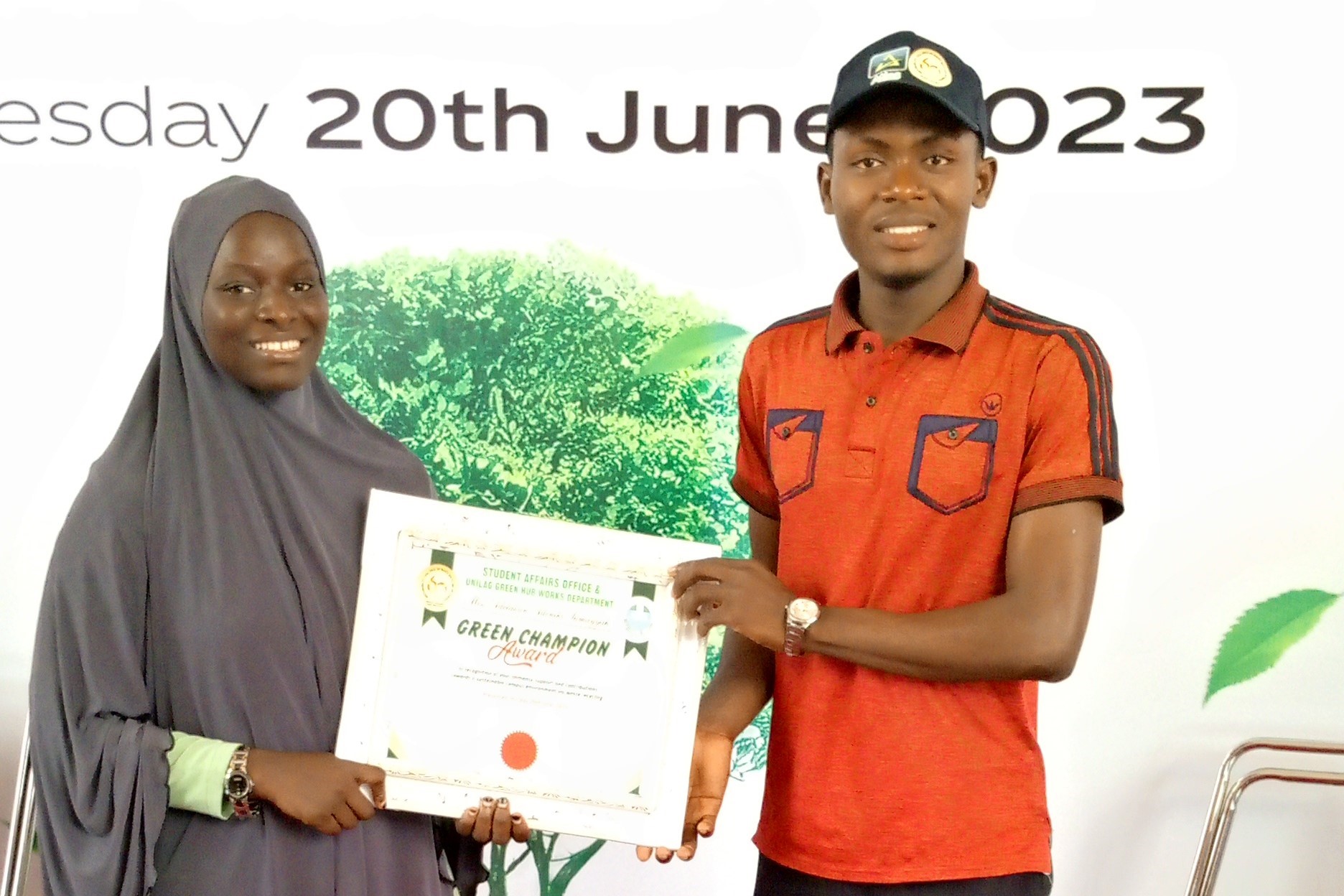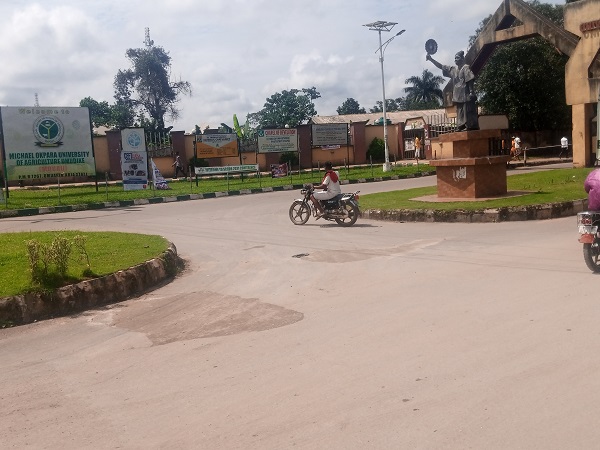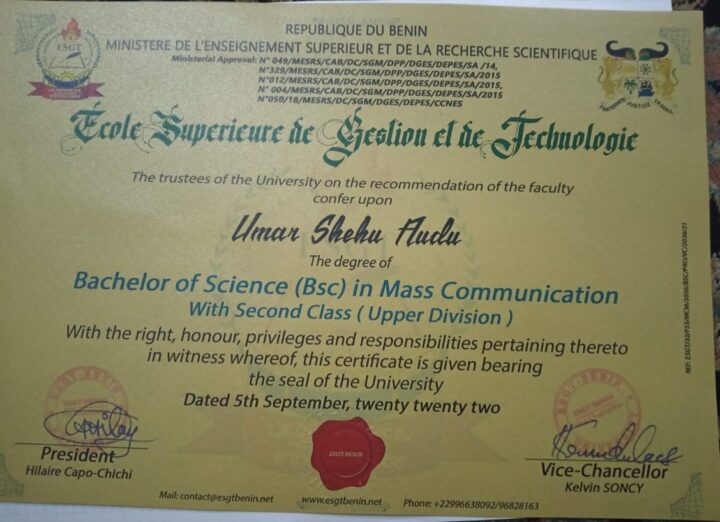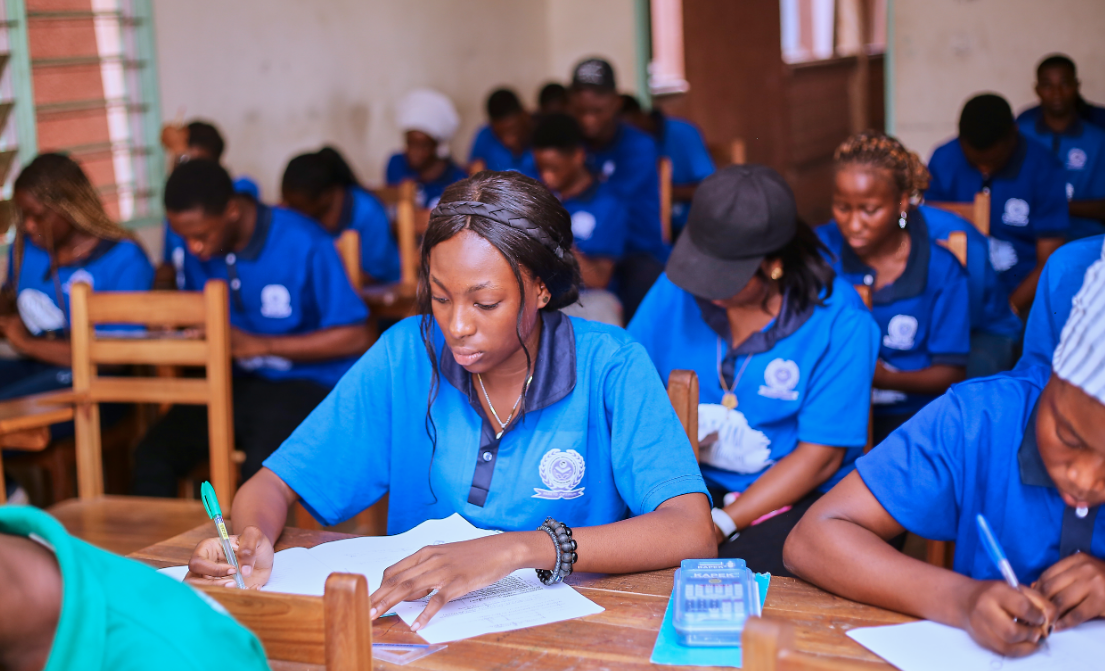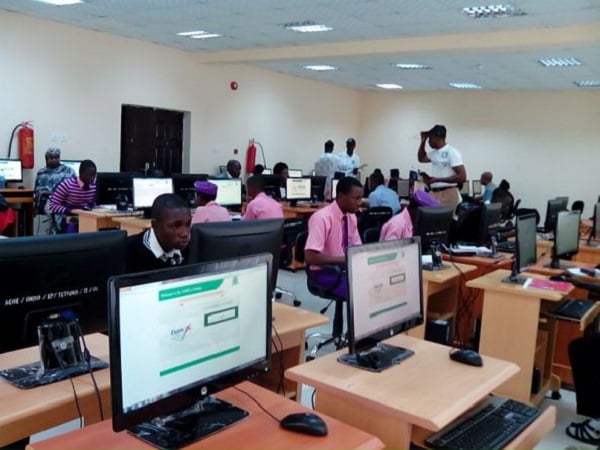BY AZEEZAT OLATUNDE
Angel Nwosah, a 200-level student of political science at the University of Lagos, has a penchant for drinking bottled water due to health reasons, resulting in a collection of empty plastic bottles accumulating in her hostel.
“I was once admitted to the hospital because of the water I drank. It was after this incident that I started drinking only bottled water,” Nwosah said.
Six weeks after resumption, Angel grappled with the challenge of responsibly disposing of the plastic bottles that had amassed in her hostel. Her friend suggested a drop-off centre at Mariere Hall. The promise of getting an incentive in return piqued Angel’s interest.
Advertisement
One morning in December, Angel eagerly packed her stack of seventy-six plastic bottles into the blue kiosk in front of Mariere Hall in anticipation of exchanging them for a reward.
“I thought I would be given money in exchange for the bottles until I was told to write my name and contact information in a logbook. I anticipated the incentives and stacked up more bottles,” Nwosah said.
The attendant at the drop-off centre informed Nwosah that she would be contacted once her accumulated plastic bottles reached 500 pieces. At that point, she would be eligible for the incentive. She is looking forward to receiving the reward when her bottles clock 500.
Advertisement
THE REWARD FOR COLLECTING OVER 17,000 BOTTLES
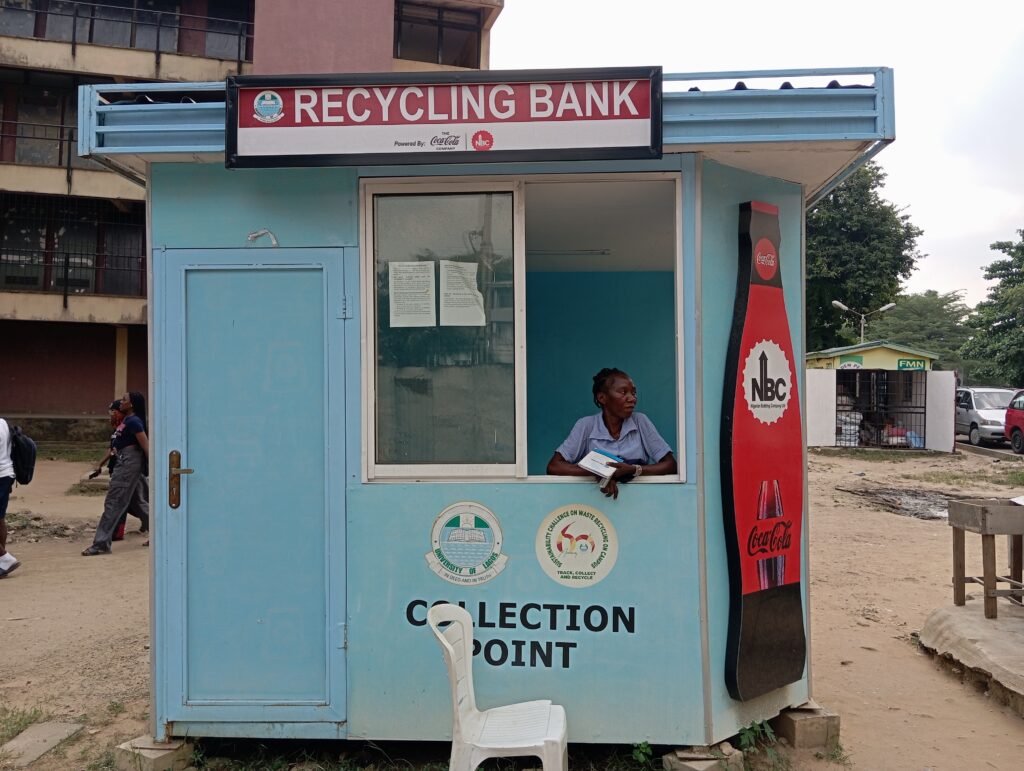
“God forbid!” Sumayyah Adelakun exclaimed when a friend suggested to her the idea of picking bottles in exchange for meal tickets.
“I didn’t like the idea of picking bottles on the road just for meal tickets. So, I initially ignored it until I attended a programme where the initiative was properly explained.
As a 100-level student at the time, Adelakun devised a strategy to collect bottles from students in her hostel.
Advertisement
“I bought sacks and announced that everybody should drop their used plastic bottles inside it. I also informed the cleaners not to dispose of the plastic bottles they found in the trash bins,” Adelakun said.
Over time, she gathered six full sacks, amassing more than 1,000 bottles, which she then transported to the take-off centre located at Amina Hall.
“I happily took it to the take-off centre and received a week’s meal ticket in return,” she said with a smile.
Throughout the semester, Adelakun continued this collection, earning either a meal ticket or a reward of five thousand naira each week.
Advertisement
“At the end of the semester, I was invited to attend a seminar where they awarded participants certificates. I was recognised for collecting the highest number of bottles, totalling 17,800,” she said proudly.

During the event, Musa Obalola, the director of student affairs (DSA), revealed that Adelakun, besides her academic pursuits and contributions to the Green Eco Hub initiative, was also assisting a visually impaired student on campus. To Adelakun’s surprise, after the DSA’s announcement, one of the guest speakers gifted her N50,000 to appreciate her tremendous efforts.
Advertisement
When asked if she intended to continue with the Green Eco Hub, Sumayyah affirmed: “Yes, I definitely want to, and I have some stacks of bottles that I intend to submit when the Green Eco Hub begins full operation for this semester.”
TOWARDS AN ECO-FRIENDLY CAMPUS
Advertisement
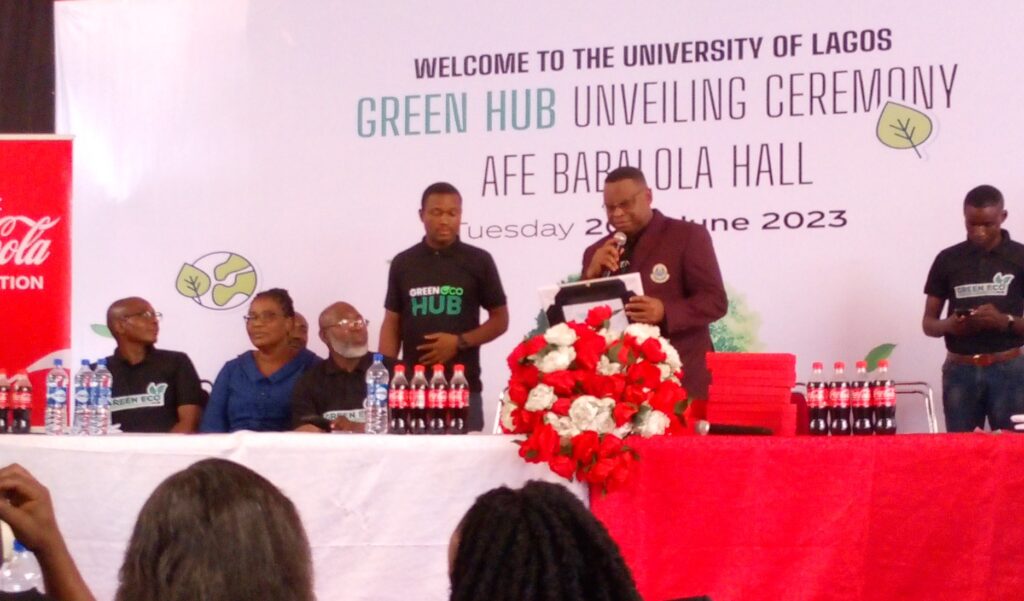
Abdulganiyy Adelopo, the principal quality control officer of the University of Lagos overseeing resource management in the areas of environment, water, and waste, shared insights into the university’s initiative aimed at enhancing waste management and converting waste into wealth.
“The culture of waste sorting is still nascent in Nigeria. Despite the use of coloured bins with labels for waste sorting on campus, you will find most of the waste commingled. This spurred us to find alternative means to manage waste in the university,” Adelopo said.
Advertisement
After thorough brainstorming, the university, in collaboration with NBC (Nigeria Bottling Company), established the Green Eco Hub—a recycling bank and a learning centre for waste management and recycling education. Additionally, a recycling binding machine was provided to compress plastics efficiently. The incentive system was created to involve students in the waste management value chain.
“This semester’s sustainability challenge is themed ‘Recycle Bottles 4 Drink’. Students will get a bottle of drink for every 40 bottles they deposit at the take-off point. People with 500 bottles will get a pack of water or meal ticket in return,” he stated.
To promote an eco-friendly environment, some activities, such as the sustainability challenge (track, collect, and recycle), were implemented. These activities were designed to raise awareness in the university community and reduce indiscriminate disposal of waste.
Despite the initiative, the last semester (from January to June) saw the collection of over 250,000 plastic bottles, falling short of the initial target of 1.5 million bottles.
“The rate of participation in the initiative did not match the volume of plastic used on campus,” Adelopo said.
“Another challenge facing the initiative is transportation. After the waste is generated and sorted, there is low efficiency in moving it to the final disposal site. This transportation gap needs to be closed to ensure effective waste management.
“We want an eco-friendly vehicle with minimal pollution. We don’t want to add to the carbon footprint, making us the first university to implement an eco-friendly collection system for our recycling bank.”
PLASTIC WASTE IN NIGERIA
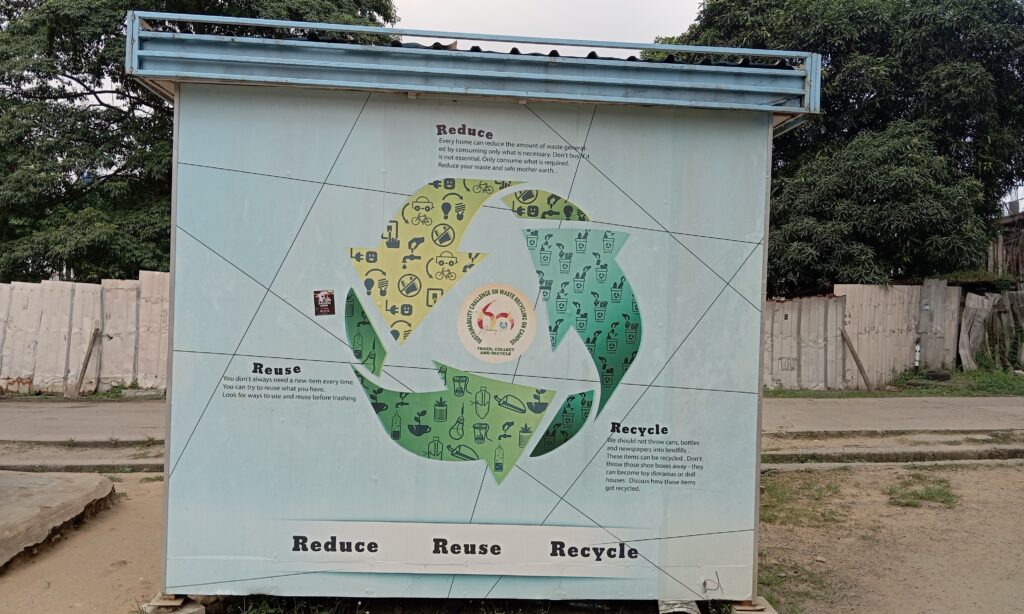
According to reports, Nigeria ranks ninth in the world for plastic pollution, producing an estimated 2.5 million tons of plastic waste yearly, of which less than 12% undergo recycling. The country needs help managing waste as citizens indiscriminately discard waste products on the roads and into gutters.
The recently released Global Circularity Gap Report 2023 revealed a disheartening reality: the global economy operates at a 7.2% circularity level. This indicates that over 90% of materials end up as waste, becoming unavailable for reuse or recycling. These alarming statistics contribute to a substantial circularity gap, necessitating a heavy reliance on raw materials, which may face the risk of extinction in years to come.
Environmental experts have noted over time that there is a need to employ sustainable measures to decrease the consumption of natural resources and redirect waste products towards recycling and reuse, thereby contributing to a cleaner environment.
